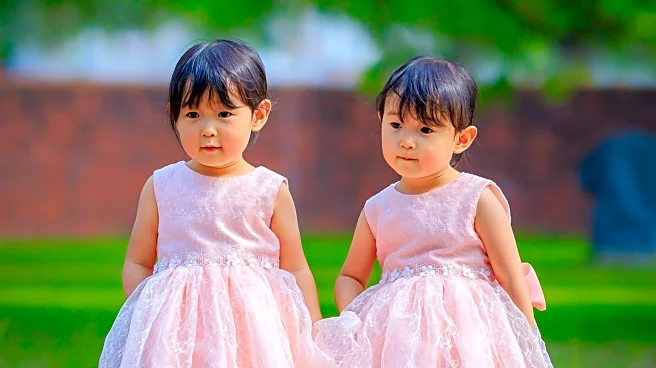What's Happening?
Abby and Brittany Hensel, conjoined twins from Minnesota, continue to live active and fulfilling lives despite their unique condition. Born in 1990, the twins are dicephalic parapagus, meaning they have
two heads but share one body. They have graduated from Bethel University and are now working as primary school teachers. The twins face challenges such as public curiosity and speculation about their private lives, but they remain determined to lead normal lives. Their ability to coordinate movements and engage in everyday activities showcases their resilience and adaptability.
Why It's Important?
The Hensel twins' story is significant in highlighting the capabilities of individuals with disabilities. Their ability to live independently and pursue careers challenges societal perceptions of disability and encourages more inclusive narratives. As educators, they serve as role models, demonstrating that physical limitations do not define one's potential. Their story also raises awareness about the complexities of conjoined twins, contributing to broader discussions on medical ethics and disability rights.
Beyond the Headlines
The twins' story raises ethical questions about privacy and media representation. As public figures, they have been subject to curiosity and speculation, which can impact their personal lives. Their decision to share aspects of their lives through media reflects a desire to control their narrative. This highlights the importance of respecting the privacy of individuals with unique conditions while acknowledging their contributions to societal understanding of disability.











